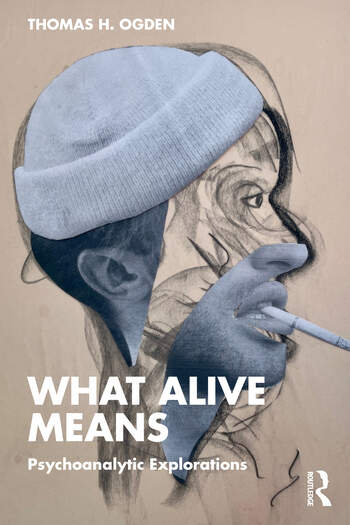The Troubled Mind of Northern Ireland: An Analysis of the Emotional Effects of the Troubles

Book Details
- Publisher : Routledge
- Published : 2004
- Cover : Paperback
- Pages : 160
- Category :
Psychoanalysis - Catalogue No : 17713
- ISBN 13 : 9781855759930
- ISBN 10 : 1855759934
Also by Raman Kapur
Our Customers Average Rating
Read all reviews (1)





The "Troubles" in Northern Ireland have endured for so long that eventually the abnormal has become normal. This volume examines the processes by which society has become gradually dehumanised, and how the inhuman conditions, under which people have been forced to live so long, have come about. The authors seek to understand this situation and build upon the current literature, using their different personal and professional backgrounds to great effect to create a wider perspective. They describe the political background, the framework of Kleinian psychoanalysis, and then bring the two together to create a new foundation from which to move from a troubled mind to a mind at peace.
Reviews and Endorsements
'Using a Kleinian point of view, the authors admirably inform us as to how groups and individuals, including caretakers of society, react to shared anxiety and violence. Without taking into consideration the ways psychological processes contaminate societal, political and legal movements after massive trauma, it would be difficult to contemplate and initiate peaceful solutions. While this book focuses on the situation in Northern Ireland, the authors' observations and findings can easily be applied to conditions in the other troubled spots of the world. Kapur and Campbell's contributions have created an opportunity to consider new ways of thinking about ethnic and religious violence and its consequences.'
- Vamik D. Volkan, MD, Professor Emeritus of Psychiatry, University of Virginia, Charlottesville, and Senior Erik Erikson Scholar, the Austen Riggs Center
'This is a brave attempt to examine the psychological features and consequences of the "Troubles" in Northern Ireland, written with passion by two mental health professionals who know the situation well. Critical and hard-hitting, it also suggests what needs to be done to find a new way forward.'
- Stephen Frosh, Professor of Psychology, Birkbeck College, University of London
About the Author(s)
Raman Kapur, MBE, is a Consultant Clinical Psychologist specialising in psychotherapy, and is also the Chief Executive Officer of the mental health charity Threshold, based in Belfast, Northern Ireland. He is an Associate Fellow of the British Psychological Society and also holds an Honorary Senior Lectureship with the School of Psychology, the Queens University of Belfast, where he was formerly course Director of the MSc in psychoanalytic psychotherapy. In 2012 he was awarded an MBE by the Queen for his work in providing services to people with mental illness in Northern Ireland.
Jim Campbell is a senior lecturer in the School of Social Work, Queens University Belfast, having previously worked as a mental health social worker in Northern Ireland.
Customer Reviews
Our customers have given this title an average rating of 5 out of 5 from 1 review(s), add your own review for this title.
Dr C.J.S.Holland on 30/09/2004




 (5 out of 5)
(5 out of 5)
Brief review of The Troubled Mind of Northern Ireland by Raman Kapur and Jim Campbell.
"WHO WANTS TO UNDERSTAND, I WANT TO FIGHT"
This is a first class undertaking to try to say it straight to the Troubled Mind of Northern Ireland, and to add deep psychological understanding from the world of psychoanalysis. The book clearly addresses the powerful grip of the fundamentalist, primitive and fascist state of mind, in its individual and group manifestations, and offers both simple and profound analytical concepts for elucidating such primitive, persistent and pervasive states of mind. There will be opposition in proportion to the degree that various people and groups feel that their treasured beliefs are being described in ways that they do not like. The fundamentalists in all religions, sects and movements
Create their corresponding opposite pole - like conservative evangelical capitalists in the USA or "the West", and Al Quaida or Bin Ladin in "the East".
The journalist between such polarised opponents is likely to be twice traumatised - once "standing over a body describing the site for the photographer and going on to the next one", and then, when attempting to balance the arguments, is attacked from both sides as dreadfully biased.
Hearing so often about the terrible traumas from all ranges of society, and trying to contain the feelings engendered by the primitive actions and counteractions, secondary trauma is the hazard of the therapists, the therapeutic community and the peacemakers. As Kapur and Campbell describe so vividly, the offered insight is treated as an invasive attack. They know, as one of the founders of psychoanalysis warned many decades ago, that as the thoughts that are personally unacceptable to us are suppressed into the unconscious of individuals and groups, so we should not be surprised at the resistance to pointers towards unpalatable truths, and not only resistance to, but hatred of those who wish to build bridges of understanding or hope.
The authors have described in detail many vivid examples from a variety of settings illustrating the troubled minds and the ways that analytical ideas, concepts and theories can illuminate such troubles - or even understand them. What Kapur and Campbell are courageously taking on is the common atmosphere of "who wants to understand, Id rather fight!"
Dr C.J.S.Holland
Psychiatrist, Psychoanalyst and Psychotherapist
Visiting Consultant to Threshold for over ten years.
Scottish Institute of Human Relations, Edinburgh.
You may also like
Night Vision: Wilfred Bion's Epistemological Poetics and the Experience of the...
Dominic Angeloch
Price £26.09
save £2.90








